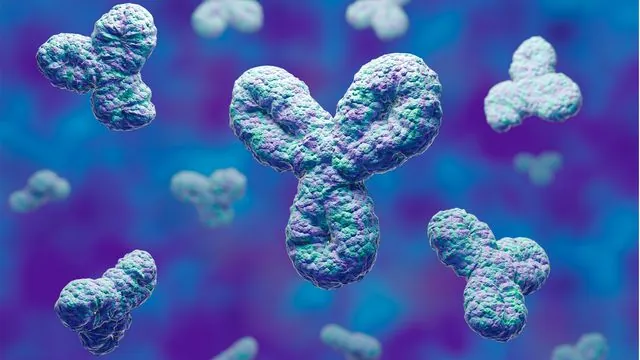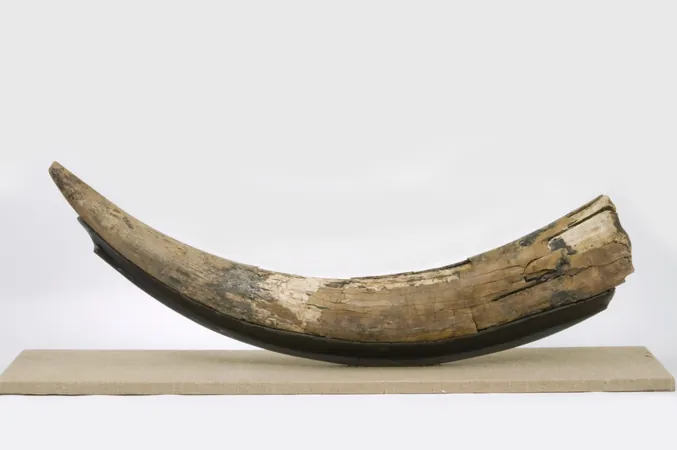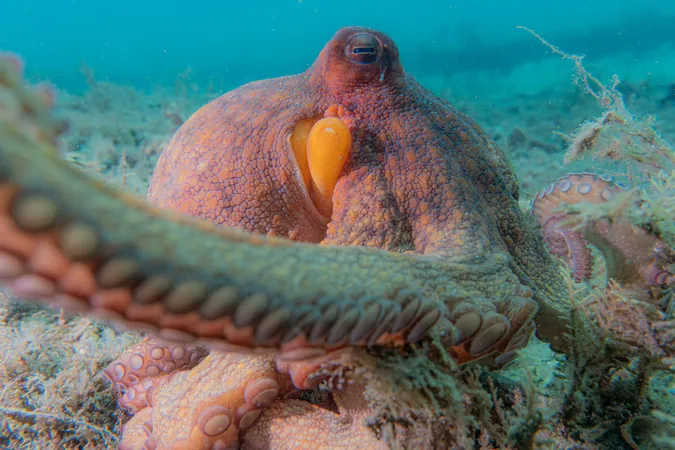
Revolutionary Antibody Cocktail Promises Universal Flu Defense for Mice
2025-09-15
Author: Ming
A Game-Changer in the Fight Against Influenza
A groundbreaking therapy from The Jackson Laboratory (JAX) could transform global strategies for tackling influenza, one of the most lethal infectious diseases. Recent findings published in *Science Advances* reveal that a unique cocktail of antibodies shielded mice—including those with compromised immune systems—from nearly every tested influenza strain, including perilous avian and swine varieties.
Outsmarting the Virus: No More Mutant Escape Plans!
In stark contrast to existing FDA-approved flu treatments that focus on viral enzymes—often rendered ineffective due to mutations—this pioneering therapy has proven resilient against viral escape, even after a month of repeated exposure. This breakthrough could be vital during outbreaks, when the speed and efficiency of treatment deployment directly determines survival rates, especially considering that vaccine development takes around six months.
Historic Discoveries in Antibody Functionality
"This marks the first time we've witnessed such extensive and enduring protection against the flu in a living system," noted Silke Paust, lead immunologist and study senior author. Remarkably, even when treatment was administered days post-infection, a majority of the treated mice survived.
The research challenges long-standing assumptions about the role of antibodies in viral therapy. Traditionally, only "neutralizing" antibodies—those that directly bind to viruses—were deemed effective. However, this team engineered "non-neutralizing" antibodies that, while not preventing infection, tag infected lung cells and summon the immune system to eradicate the virus. This innovative approach could redefine treatment strategies for various viral outbreaks.
Harnessing the Power of M2e Protein
The scientists focused on a critical and highly conserved section of the influenza A virus, known as Matrix Protein 2 (M2e). This vital region remains nearly unchanged across all flu strains, making it an ideal target for a universal therapy.
Their studies showed that the therapy not only avoided viral resistance even after extensive exposure but also delivered optimum results when the three antibodies were combined, thwarting the virus's chances of evasion.
Promising Results: A Beacon of Hope for High-Risk Groups
The antibody cocktail proved effective even in low doses, significantly diminishing disease severity and viral presence in the lungs. In tests involving the notorious H7N9 bird flu, the therapy drastically reduced viral levels, yielding remarkable survival rates: 100% when administered within the first three days post-infection, 70% on day four, and 60% on day five.
Towards a Future Without Flu Fear
Though still in preliminary stages, these results hint at a future where rapid-response therapies could be readily available to combat seasonal outbreaks or pandemics. Current flu vaccines often become obsolete due to rapid virus mutations, heightening the urgency for innovative solutions.
Paust emphasizes the necessity of accessible treatments, stating, "We need something that’s ready-to-use during outbreaks when time for new vaccine production is critically limited."
Next Steps: Human Trials on the Horizon
The research team is now on a mission to develop antibodies for clinical trials, aiming to create a "humanized" version that targets the M2e protein without provoking adverse immune reactions. They envision this cocktail not only serving as a cure for severe flu cases but also as a preventive measure for vulnerable populations, such as the elderly and immunocompromised individuals.




 Brasil (PT)
Brasil (PT)
 Canada (EN)
Canada (EN)
 Chile (ES)
Chile (ES)
 Česko (CS)
Česko (CS)
 대한민국 (KO)
대한민국 (KO)
 España (ES)
España (ES)
 France (FR)
France (FR)
 Hong Kong (EN)
Hong Kong (EN)
 Italia (IT)
Italia (IT)
 日本 (JA)
日本 (JA)
 Magyarország (HU)
Magyarország (HU)
 Norge (NO)
Norge (NO)
 Polska (PL)
Polska (PL)
 Schweiz (DE)
Schweiz (DE)
 Singapore (EN)
Singapore (EN)
 Sverige (SV)
Sverige (SV)
 Suomi (FI)
Suomi (FI)
 Türkiye (TR)
Türkiye (TR)
 الإمارات العربية المتحدة (AR)
الإمارات العربية المتحدة (AR)